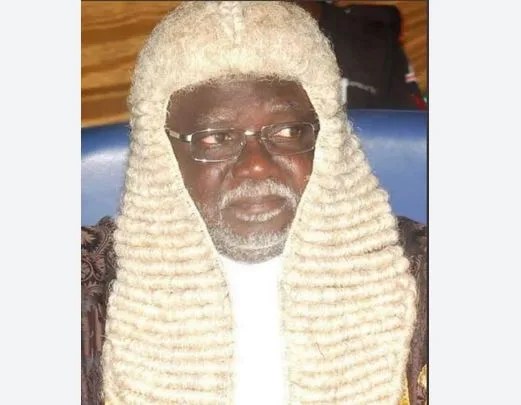The Chief Justice of Nigeria, Justice Olukayode Ariwoola, on Monday, said that collective efforts of judges and other stakeholders in the judiciary will continue to shape the future of justice in the African region.
Ariwoola, who is the Chairman of the ECOWAS Judicial Council stated this while giving an opening remark at the statutory meeting of the council in Abuja.
The council will receive the recommendations of the two committees for deliberations.
Among other things, it will reflect on progress made, challenges facing the court, and the opportunities.
At the meeting, the CJN reminded the stakeholders that as jurists, they all bear the weighty responsibility of safeguarding the principles of justice, upholding the rule of law and advancing the cause of peace and prosperity for the millions of people in the region.
He said: “As representatives of the highest echelons of the judiciary across member states, your presence here today is not just a formality, but a testament to the significance of our collective mission.
“In consideration of the recommendations to be submitted and the emerging threats and evolving dynamics in the justice delivery sector, let us be guided by wisdom, integrity, and the resolve to navigate the complex terrain of justice in the 21st century.
“Your individual contributions have brought us to this point, and I am confident that our collective efforts will continue to shape the future of justice in our region.”
Ariwoola then charged the meeting to inspire hope, and build a brighter future for the people of West Africa.
Also speaking, President of the Community Court of Justice, ECOWAS, Hon. Justice Edward Amoako Asante noted that potential jurisdictional conflicts between the regional and the national legal systems could be addressed through regular and constructive judicial dialogue and engagement.
While commending the Council’s efforts to secure the effective implementation of the Court’s decisions, he submitted that the current normative framework that allows citizens of the Community to access the Court without first exhausting local remedies is not, and should not be viewed as confrontational as the Ecowas Court does not have or pretend to have an appellate jurisdiction over National courts, neither is it in competition with national Courts.
“Parties have a choice as to which Court to access, and where they access both the Ecowas Court and the National Court simultaneously, the Ecowas Court stays its hands and orders them to proceed to deal with the matter before the National Court.” he added.
“I know that in all regional economic integration blocs, the coexistence between a supranational tribunal and the domestic courts of member states is not always as peaceful as one would like it to be.”
In his speech at the meeting, the Attorney General of the Federation and Minister of Justice, Prince Lateef Fagbemi, SAN asked the jurists to initiate a reform-oriented review of the practice and procedure of the ECOWAS Court of Justice to avoid conflicts with national courts in order to make the court realise envisioned potential as a respectable regional court.
He added; “Your Lordships, permit me to state that the ECOWAS Judicial Council should also provide a credible network for promotion of uniform rules of practice and procedure in the administration of justice in order to reduce conflict of laws in the region.”










